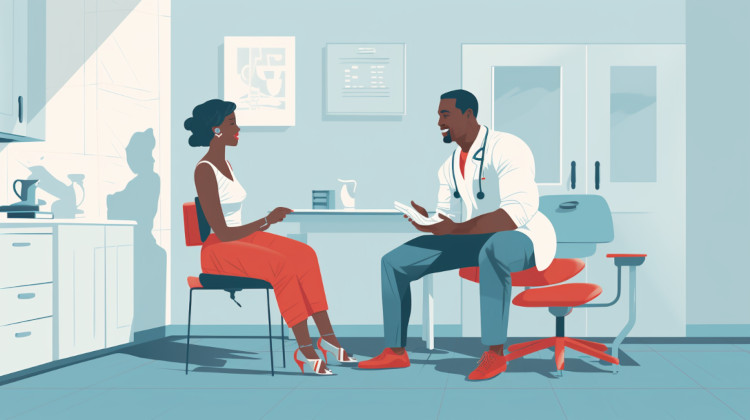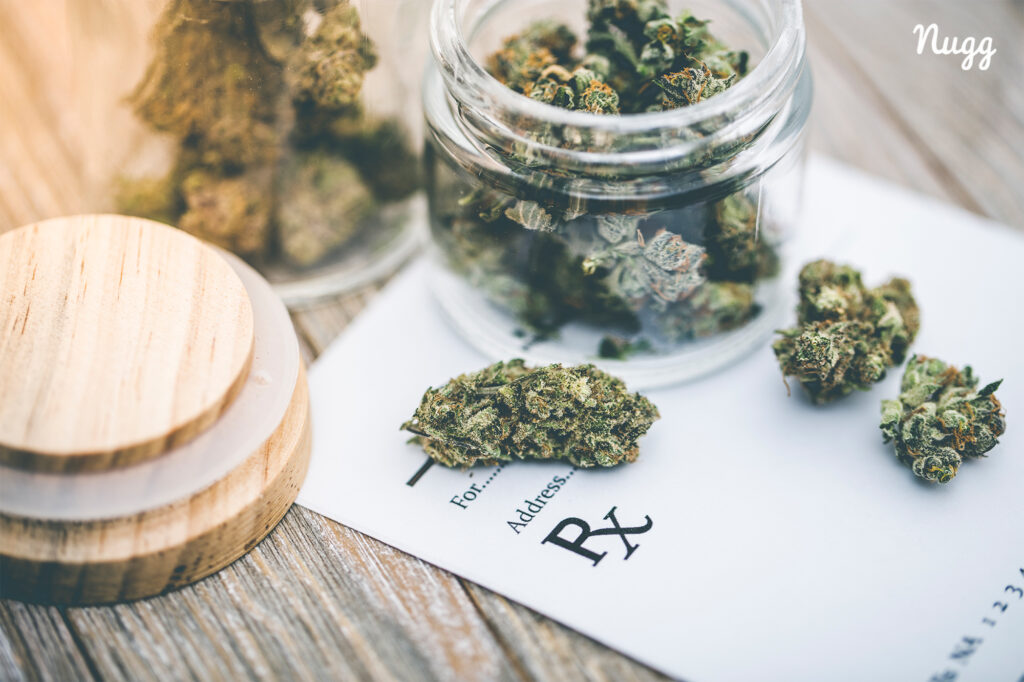
Anorexia nervosa is an eating disorder that impacts the way an individual views food and their body. Typically, the goal of those with anorexia is to gain control of their body and weight.
Individuals with anorexia will often restrict food intake to change their bodies. They may follow extreme diets that align with reduced food consumption. Other behaviors may include the use of enemas or laxatives or exercising in a way or to a degree that can be harmful to the body.
Because many actions associated with anorexia mirror healthy behaviors – avoiding unhealthy foods and frequent exercise – it can be challenging to identify. And many people may dismiss the eating disorder as a “choice not to eat.” However, anorexia nervosa is a real condition with serious health implications that should be taken seriously.
Thankfully, there are treatment and support options available. The question many cannabis consumers want to know is: can medical cannabis be effective in helping treat anorexia?
What Causes Anorexia?
There isn’t one cause for anorexia, but it often starts as typical dieting. Individuals might begin with slight calorie restriction before their “normal” or “healthy” diet cascades into a full-blown eating disorder.
Research suggests that 50% to 80% of the risk for developing an eating disorder is due to genetics. Trauma, culture, and environment are several other potential causes that may lead to an individual developing an eating disorder like anorexia.
Societal pressures and family views on the body can expose individuals to diet culture and impossible beauty standards at a young age. Alternatively, anorexia nervosa may develop as a coping mechanism to feel a sense of control when dealing with difficult emotions or significant life changes.
Anorexia Signs & Symptoms
Anorexia is most commonly diagnosed in teenage girls, but it can impact any gender or age. Because the initial impact of anorexia can look like healthy behavior, it can be a difficult condition for individuals and their loved ones to recognize.
There are two main types: restrictive and binge-purge. If you are experiencing anorexia, you may have one or more of the following symptoms:
- Food restriction
- Distorted body image
- Binging and purging
- Rapid weight loss
- Anemia
- Muscle weakness
- Thinning of the bones (osteoporosis)
- Fatigue
Can Cannabis Help Alleviate Anorexia Symptoms?

Anorexia nervosa can develop for different reasons, and one of the most common treatment methods is psychotherapy or traditional pharmaceutical medications like antidepressants. But, increasingly, individuals and medical practitioners are considering medical cannabis to help treat anorexia.
One of the most direct ways that cannabis may help anorexia patients is by increasing appetite to promote weight gain.1 Cannabis can be an incredibly powerful appetite stimulant, encouraging individuals to eat when they might otherwise avoid a meal.2 Not only that but cannabis has been known to increase the level of satisfaction from eating.3
Anxiety is also a common symptom associated with anorexia nervosa. Low-dose THC and CBD have demonstrated potential anti-anxiety effects, indicating it may prove helpful for patients with anorexia.4
Cannabis has shown promise as an effective way to reduce some symptoms of anorexia and help induce weight gain. However, medical cannabis is not a cure for anorexia, and it’s important to use cannabis in a healthy way that will bring balance to your relationship with food. As such, the most important step a potential patient can take when considering medical cannabis to treat anorexia is to speak with their doctor about the possible applications, products, and doses.
Legality and Doctor’s Recommendation
To determine if your state considers anorexia to be a qualifying condition for medical marijuana, check out our Laws & Regulations section for the medical cannabis rules for your state.
If you find that your state recognizes anorexia or its symptoms as a qualifying medical condition, you can seek a doctor’s recommendation to get your medical cannabis card in your state.
How NuggMD Can Help

NuggMD is the nation's leading medical marijuana technology platform, serving patients in over half the United States. We’ve connected over 1,300,000 patients with their new medical marijuana doctors face-to-face via our state-of-the-art telemedicine platform.
We believe that every human being has the right to explore the benefits of medical cannabis and are fully committed to helping each patient explore all of their options in their journey to wellness. For further information on whether you qualify for medical cannabis, select your state.
References
- Rogers CI, Pacanowski CR. The relationship between cannabis and anorexia nervosa: a scoping review. Journal of eating disorders. 2023;11(1). doi:https://doi.org/10.1186/s40337-023-00887-9
↩︎ - Farokhnia M, McDiarmid GR, Newmeyer MN, et al. Effects of oral, smoked, and vaporized cannabis on endocrine pathways related to appetite and metabolism: a randomized, double-blind, placebo-controlled, human laboratory study. Translational Psychiatry. 2020;10(1). doi:https://doi.org/10.1038/s41398-020-0756-3 ↩︎
- Kirkham TC. Cannabinoids and appetite: Food craving and food pleasure. International Review of Psychiatry. 2009;21(2):163-171. doi:https://doi.org/10.1080/09540260902782810 ↩︎
- Sharpe L, Sinclair J, Kramer A, de Manincor M, Sarris J. Cannabis, a cause for anxiety? A critical appraisal of the anxiogenic and anxiolytic properties. J Transl Med. 2020;18(1):374. Published 2020 Oct 2. doi:10.1186/s12967-020-02518-2 ↩︎
The information in this article and any included images or charts are for educational purposes only. This information is neither a substitute for, nor does it replace, professional legal advice or medical advice, diagnosis, or treatment. If you have any concerns or questions about laws, regulations, or your health, you should always consult with an attorney, physician or other licensed professional.

